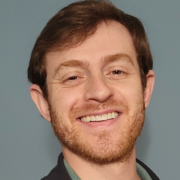
Greek sisters Loanna and Areti Spanomarkou, celebrated as two of the most influential composers of recent decades, are set to make their feature film debut with “The Lost Oracle of Trophonius”, a production that blends mythology, history, and suspense into an epic narrative. Described as a thrilling adventure in the vein of Indiana Jones and The Da Vinci Code, the film will be shot across archaeological sites in Greece and studios in Romania, inviting audiences to journey deep into the heart of ancient Hellenic mysteries.
Members of the Recording Academy (Grammys) and winners of numerous international awards for their scores, screenplays, and direction, the Spanomarkou Sisters continue to push the boundaries of contemporary Greek art. Produced by their own company, Strofinx, the film reaffirms their commitment to preserving Greek cultural heritage while connecting tradition and modernity on a global stage.
“The Lost Oracle of Trophonius” blends mythology, history, and suspense. What was the process like of transforming an ancient legend into a contemporary cinematic story — while keeping its Greek soul alive?
For us, “The Lost Oracle of Trophonius” is not just a story, it’s a return to the sacred roots of Greek storytelling. Greeks grow up surrounded by myths that feel more like memories than stories. You drive through cities or villages and suddenly realize you’re passing by the very places where Socrates, Hercules, Odysseus, or Leonidas once walked.
That’s exactly what happens to us every time we visit the city of Levadia , and that sparked our long-term research to locate the underground cave of Trophonius, which was once a treasury and later became an oracle. Pausanias himself had visited and described it in detail, but its true location has been lost in time.
During a coffee break at a masterclass in Athens with legendary film executive and former Oscars president, Sid Ganis, we were telling him and his wife, producer Nancy Ganis, that it would be a great idea to visit some archaeological sites on their way to Ioannina. During our
conversation they sensed our passion for history and asked, “Why don’t you combine it with your passion for films?” That phrase lit a spark, and suddenly we were inspired to make this movie that is now in pre-production, with an international cast. It’s set in modern Greece, and follows an archaeologist on his adventurous quest through museums and ancient sites to discover the Lost Oracle of Trophonius.
When we began shaping the film, we didn’t want to retell an ancient legend , we wanted to reawaken it. Our dream is to carry audiences away so completely that they’ll want to visit the very places where the myth was born. This is why it’s very important for us to film on the actual archeological sites and museums. You can still feel the energy of Trophonius in those stones, by the rivers of Memory and Forgetting “Lethe and Mnemosyne”. What amazing names for rivers, right?
Our challenge was to bridge eras, keep the mysticism, symbolism, and spirituality of the legend, and translate them in a way that today’s audience will feel in their bones. The result, we hope, is a film that speaks globally but beats with a Greek heart.
You started as composers and are now stepping into the world of filmmaking. What has music taught you about storytelling that now shapes your work as writers and directors?
Music is the first form of storytelling we ever knew. Each of our songs tell a story. Music teaches you structure, rhythm, silence, how to build tension and when to let things breathe. In a way, we look at movie scenes as melodies.
When we write a screenplay, we don’t just visualize…we hear the music behind the dialogue. You can orchestrate emotion through dialogue, action, light, shadows, and sound. So, we apply the same philosophy. It’s always a challenge to move the audience, guiding them through crescendos and pauses, as if leading their emotional journey.
We are delighted that our amazing director for “The Lost Oracle of Trophonius”, Antonis Sotiropoulos, comes from a music background, and started out as a composer. He understands the rhythm of our screenplay and underlying emotions, bringing it to life as we have imagined!
Greece has one of the most powerful cultural heritages in the world. How do you balance honoring those traditions with your desire to innovate and speak to a global generation?
Tradition, to us, is not a museum piece , it’s alive. It speaks differently to every generation. Each generation dives into the previous ones in its own way.
Our approach in filmmaking is to respect the essence and experiment with the form. We may use ancient myths, Byzantine modes, or folk rhythms, but we reinterpret them through modern soundscapes, cinematic language, and international collaborations. If you want to grow new, longer branches, you want to make sure you spread your roots deeper.
The world is ready to rediscover Greece beyond clichés, to see modern Greece on screen while still feeling its timeless culture. It would be a blessing if, while watching our films, some teenagers in the cinema pick up their phones and Google something. That’s actually our
goal! We remember having the same reaction after watching The Da Vinci Code and Indiana Jones.
We ran to the encyclopedia and internet.

As members of the Recording Academy and artists reaching international audiences, how do you see the role of art in building bridges between different cultures?
All hearts beat the same. The heartbeat was the first rhythm humans ever copied to create music. It is universal, no translation needed to enjoy a great song.
Through music and film, we’ve seen how a melody born in Greece can touch someone in Japan, Malaysia, Mexico, or New York. They don’t just understand it, they feel it.
Being part of the Recording Academy has reinforced the belief that every note carries the power to connect and to heal. Music brings people together, voices unite, heartbeats align, and suddenly no one cares where the person next to them comes from.
Working side by side as sisters surely brings both harmony and challenges. How does your relationship influence your creative process and artistic decisions?
It really helps us not be chaotic! [laughs] There’s an unspoken rhythm between us, we can finish each other’s sentences and melodies. We even laugh the same sometimes! When one of us imagines something, the other somehow already knows how it sounds or looks. As if the muse inspires us together.
Of course, like all power teams, we don’t always agree, but those disagreements and different views spark conversations that are productive. Collaboration means mixing ideas and stepping outside your comfort zones. We never argue about who’s right, but about what makes the project better. That’s the power of sisterhood: honesty and trust.
Across music, cinema, and storytelling, what message or emotion do you most hope to leave with those who experience the work of the Spanomarkou Sisters?
We want to create connection .. to make someone feel that their heart just recognized something familiar, even if they can’t explain why. Whether through a melody, a scene, or a story, that’s the feeling we chase.
Our dream is to awaken emotion, to inspire people to feel, to get curious about history, art, and discovery… to search for their roots, their passions, their true selves. To help them experience that magical, ecstatic feeling of inspiration. That’s what we hope for.
Follow Loanna and Areti Spanomarkou on Instagram


